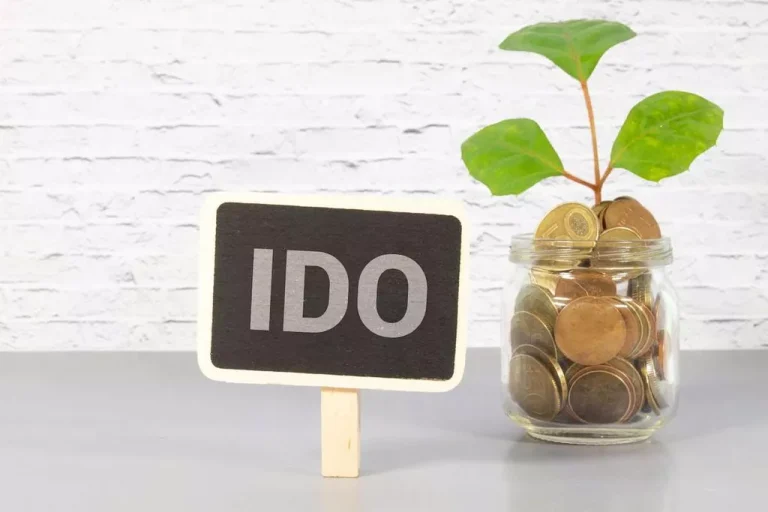What is Direct Market Access DMA? DMA Explained
Content
All of the information on this website is protected by copyright and is legally owned by Quadcode as its intellectual property (hereinafter – Intellectual Property). Start your own brokerage with fully customisable solutions in just 2 weeks. Is a regular dad trying to be smart about forex crm how we play and win in this big game of life. He has worked within the very best of the financial industry producing numerous training resources.
What’s the difference between low latency and ultra-low latency direct market access?
- DMA creates an equal playing field between different market participants – making it possible to see other traders’ movements and effectively gauge market sentiment.
- While market makers earn from bid-ask spreads and assume personal risk management, DMA traders are directly exposed to market risks.
- This means you place an order with a broker, and they execute it on your behalf.
- PCM reserves the discretion to determine if currency exposure should be hedged actively, passively or not at all, in the best interest of the Products.
- This article delves into the intricacies of DMA, its benefits, and its implications for traders seeking a more hands-on approach to their trading strategies.
- Market makers facilitate trading by always being willing to buy or sell at the quoted prices.
- The direct market access facility allows a trader/institution to trade in the financial market without any intermediary.
Electronic communication networks (ECNs) forex dma and aggregators provide foreign exchange quotes from various banks to bring together buyers and sellers. DMA provides individuals with the opportunity to execute trades and place orders directly on exchanges. DSA (Direct Strategy Access) refers to direct access to pre-defined trading strategies or algorithms. It allows traders to automate their trading activities based on specific conditions or market data.
Ultra-low latency direct market access
From providing market insights to improving cost effectiveness, DMA caters to the needs of present day traders. Let’s delve into these advantages further to understand how DMA is transforming the trading landscape. Find out how DMA works, including the markets you can trade and some trading platforms to get you started. CFD trading may not be suitable for everyone and can result in losses that exceed your deposits, so please ensure that you fully understand the risks involved. Trading in Forex/ CFDs and Other Derivatives is highly speculative and carries a high level of risk. These products may not be suitable for everyone and you should ensure that you understand https://www.xcritical.com/ the risks involved.
How do foreign exchange orders work without forex direct market access?
This can be by placing orders onto the exchange on SETS listed stocks or by dealing directly through market makers with a telephone broker. In addition to imposing conduct requirements on SMS firms, the CMA also has powers to initiate pro-competition interventions (“PCIs”) under the DMCCA. PCIs are intended to remedy or mitigate any adverse effects on competition uncovered by the CMA in relation to an SMS firm’s digital activities. Although DMA provides advantages, it also presents its set of factors to consider and risks. Traders must possess sophisticated trading systems and a stable internet connection to effectively utilize DMA. DMA enables order execution for strategies relying on specific market entry and exit points.


These platforms often provide real-time market data, advanced order types, and risk management tools to enhance the trading experience. In the realm of forex trading, DMA caters explicitly to foreign exchange trades and transactions involving investors, buy-side firms, and sell-side firms. Sell-side firms, including brokerage firms and investment bankers, create and promote products for the buy-side of the financial industry. The buy-side, comprising mutual funds, asset managers, and individual investors, conducts market research and invests in these products.
DMA provides them with a direct pipeline to the exchange, enabling them to participate in the market with speed and precision. It does not have any regard to your specific investment objectives, financial situation and any of your particular needs. In the event that you choose not to obtain advice from a FA, you should assess whether the Products are suitable for you before proceeding to invest. A copy of the Prospectus and PHS are available from PCM, any of its Participating Dealers (“PDs“) for the ETF, or any of its authorised distributors for the unit trust managed by PCM. For instance, a hedge fund or asset management company, which is an institutional investor, intends to execute a significant trade of a specific stock on the New York Stock Exchange (NYSE).
Past performance is not necessarily indicative of the future or likely performance of the Products. You may wish to obtain advice from a qualified financial adviser, pursuant to a separate engagement, before making a commitment to purchase any of the investment products mentioned herein. Deal without a middleman and get better pricing, higher liquidity, faster execution and more control over trades.
With its transparency, speed, and control, DMA empowers individuals to make more informed decisions and execute trades with efficiency. By eliminating intermediaries and providing direct access to exchanges, DMA offers a range of benefits that can enhance trading outcomes and potentially increase profitability. Direct Market Access (DMA) is a term that often surfaces in discussions about financial markets and trading strategies.
Additionally, the elimination of intermediaries can result in lower transaction costs and faster execution times. Individual investors, the retail traders often trading from their personal accounts, typically do not have access to DMA. These brokerages may use DMA themselves, but the retail trader doesn’t directly interact with the exchange order book.
One key advantage of DMA is the ability to customize trading algorithms to suit your specific objectives. Ensure that the provider employs state-of-the-art security measures to protect your trades and personal information. Regulators play a crucial role in overseeing DMA to ensure fair and secure markets. The Financial Industry Regulatory Authority (FINRA) and the Securities and Exchange Commission (SEC) are responsible for monitoring DMA activities. The information provided herein may be obtained or compiled from public and/or third party sources that PCM has no reason to believe are unreliable. Any opinion or view herein is an expression of belief of the individual author or the indicated source (as applicable) only.
DMA offers more transparency, liquidity, regulation, and better pricing. Examples of buy-side entities include hedge funds, pension funds, mutual funds, life insurance companies, and private equity funds. This form of control over trading activities is considered sponsored access. In Europe, numerous firms including Meta, Apple, and ByteDance have appealed “gatekeeper” designation decisions by European Commission.
DMA in trading is short for ‘direct market access’, which describes dealing directly onto the order books of major exchanges through a trading (DMA) broker. DMA offers many benefits but may only be suitable for advanced traders. The order is accepted by the exchange for which the security trades and the transaction is recorded on the exchange’s order book. Intermediary brokerage firms are known to have direct market access for completing trade orders. In the broad market, various entities can own and operate direct market access platforms.
This is also because trading in such high frequency could only be profitable if you trade really high amounts of volume. So you might guess that, from a cost-benefit perspective, high-frequency traders are the ones who can potentially profit from this ultra-low latency. We must say that ULLDMA service could be really expensive in terms of infrastructure. Cutting out the middleman means you have access to better pricing, higher liquidity, faster execution and better overall control on your trades.
Placing an order directly with the exchange means you need the full amount of capital. So, if 10 Google shares cost $1,200, you need to have $1,200 available in your account to complete an order. This isn’t always necessary when you trade via a broker because you may be able to buy fractional shares, for example. That’s one of the main reasons online trading has become so accessible, affordable, and popular. Brokers, aka the middlemen, handle all of the technical stuff and you get to buy and sell by tapping a few buttons.


